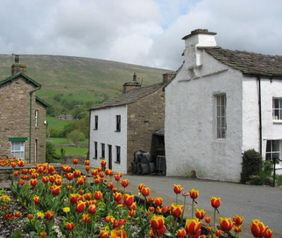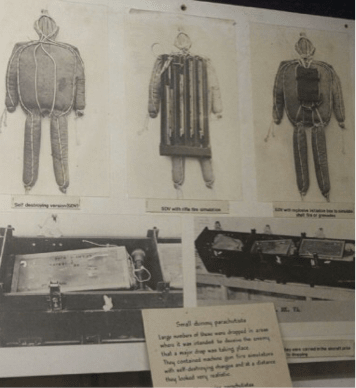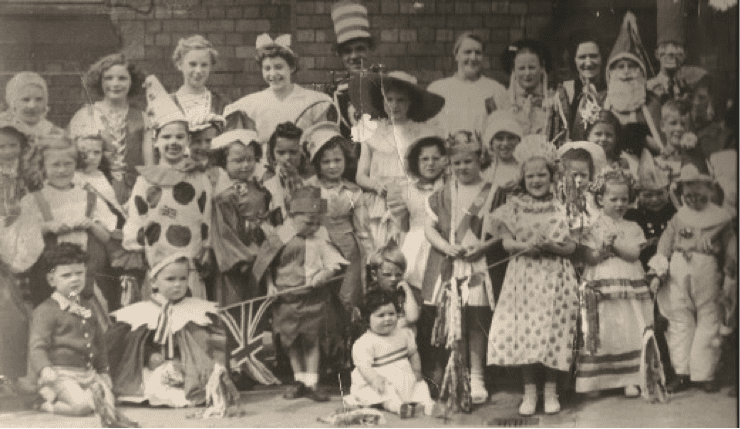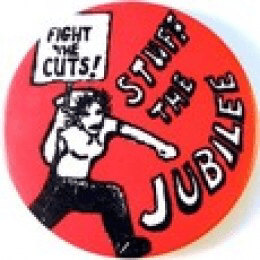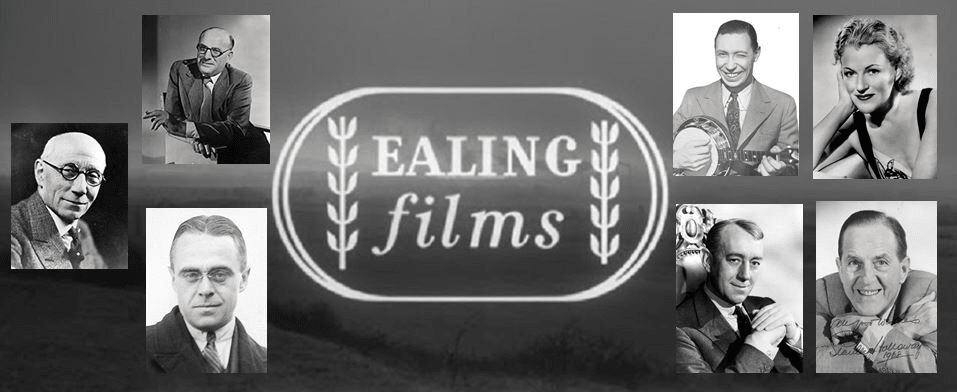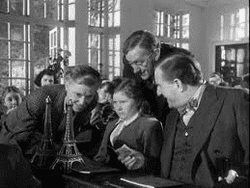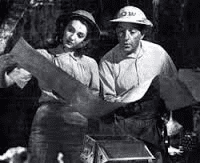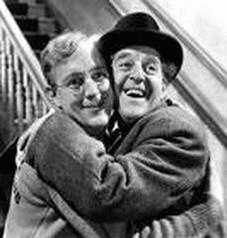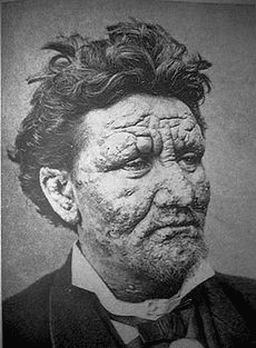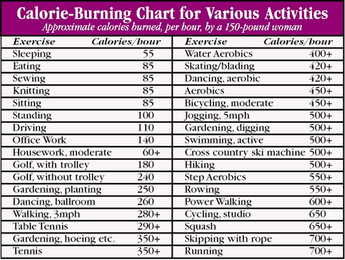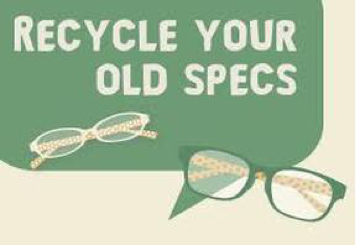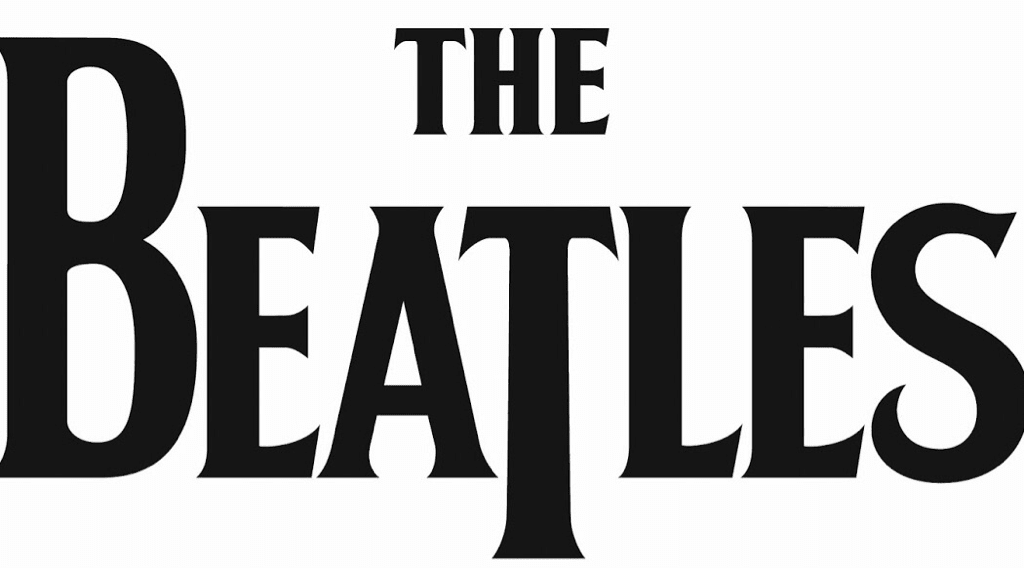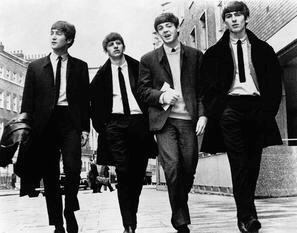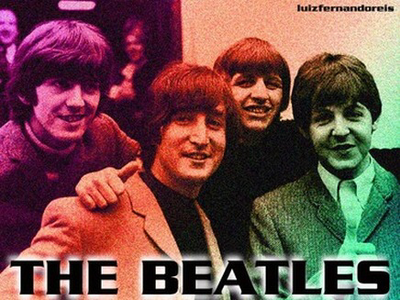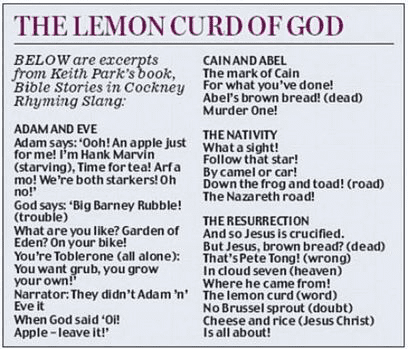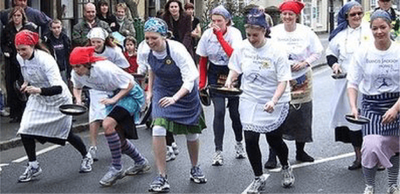|
A personal viewpoint
Queen Elizabeth II has ruled the UK and its sovereign lands since 1952. This blogger was born in Yorkshire in the UK in 1952, a little before the Queen came to the throne. The Queen's father had died about a month earlier so in truth she was the Queen in all but the ceremony and pomp. The weekend of June 2, 3, 4 and 5, 2012 the Queen's Diamond Jubilee was celebrated. Since then we have had the Queen's 90th birthday celebration keeping the British Royal Family nicely in the spotlight when it suits. The Queen has had a long and reasonably successful reign. Whilst this blogger is no Royalist she has to admit that if we have to continue with a Royal Family this edition is not too bad. Sounds disrespectful? Well my Mum and Dad would turn over in their graves, as they say. Both were firm Royalists. Dad was a veteran of World War Two and literally fought for King and Country. Both parents thought the British Royals were all the cliches such as worth their weight in gold, worked hard, had a divine right to rule and so on. As children we listened to the Queen's speech at Christmas firstly on the radio and inevitably on our fifties television. Standing for the National Anthem was just the done thing. Some younger parents were starting to let these standards slip though, even in the fifties. Our parents were classed as old to have kids back then. Aged early thirties they were way past their sell by date as far as breeding went at thta time. The War however meant that my parents were not alone. Others who had lost partners in the War were starting out again. Somewhere along the line, in the sixties or early seventies, standing for the National Anthem became something of a a joke. As movies ended in the cinema there was a rush for the exit before the Anthem was played. When Dad was still alive we would be the last ones standing, so to speak. In the end playing the National Anthem at the end of a cinema showing was scrapped. This was true of TV scheduling also. At one time each day's viewing ended with the National Anthem and those so inclined would stand up even in their own homes.Some would even sing along but times changes. I can still remember Mum, my brother and I excitedly waiting at the side of a road in our town, with hundreds of others, for the Queen's chauffeur driven car to pass by. It was a fleeting glimpse but well worth the effort. I resplendent with red, white and blue ribbons in my hair believed Mum when she said the Queen smiled straight at me. But my brother and I were very young children. Those rebellious days of the sixties and seventies had no place for the Royals. Well they did not for us. They were part of the establishment. In 1977 the Queen's Silver Jubilee was celebrated while jobs were being lost left, right and centre. It was rather like today. Hubby proudly wore his "fight the cuts, stuff the jubilee badge" much to the disgust of many. He would be tutted at but when you are young sometimes that is the desired effect, isn't it? Though my sentiments have mellowed with time I still favour a Republic. Those who loved the Diamond Jubilee celebrations good luck to you. The Queen will presumably work in the same post until she drops. Many ordinary people however will be lucky to gain any employment during their lives. My Royalist parents died in their fifties well before their time. Hard work and more had taken its toll. No soft option or bevvy of servants for them. The Jubilee eventually brought back some memories even though we did not watch any of the events. It was hard to avoid all of it though as UK TV aired 24/7 coverage. Brainwashing of citizens? Could be but that did not work on me and many others. 64 years is a long time and much has happened during that time in the UK and the World. Positives and negatives have changed our lives. The current recession and possible BRexit woes will not touch the likes of Queen Elizabeth and her entourage though. The lead image is a Coronation Party in 1953. Although the Queen had ruled for 60 years in 2012 she was not officially crowned until June 1953. I was 15 months old and my brother was 3-years-old. Our street's Coronation Party was held in a part of our town that no longer exists; until the mid seventies, when it was finally demolished, our street had numerous bomb sites. Bombies where we would play. Just about everyone was dressed in fancy dress for this "do". Brother and I were last minute party-goers due to a family bereavement and our young age. The blob in the front is me. 15-months-old with those red, white and blue ribbons again. Brother is in the far left corner. Street parties back then were friendly affairs and all joined in. The food and drink was tame compared to now. Cheap and cheerful you could say. It was at a time when sweets were still on ration following the war and not a time of plenty. The 2012 Diamond Jubilee, royal marriages and births, have all helped breed a new generation of Royalists. Now the Queen and Philip are ageing they are viewed as sweet almost grand parent figures. For many people the prospect of Wills and Kate taking over appeals. That is not liable to happen though. The Diamond Jubilee was carefully stage managed to lift the people during a time of austerity. The cost was kept secret. There is much worse to come in the near future than the current austerity and that could include another war. During such times the Monarchy want to know their people are behind them. It would seem that the vast majority are, at least for now. Please note: The main image is around two foot long and a foot deep. This means that a fair section has been omitted. That part has suffered some water damage. For many years it hung in a huge frame until this was broken. 2018:- Another Day, Another Royal Wedding, Eugenie and Jack Harry and Meghan - Prince Harry and the Duchess of Sussex Announce She Is Pregnant
1 Comment
The last forty years or so has seen credit become more and more a part of our lives in England. Back then only the more affluent people of UK society had mortgages and credit. But hire purchase had been around for 15 to 20 years and folks were getting used to purchasing goods this way. Somewhere between then and now everyone started to accept credit as part of their way of life. The culture of saving up and waiting to afford something gradually disappeared to be replaced with a ‘See it, want it, buy it’ mentality. And somewhere along the line debt was rebranded as credit but it is still money owed. Credit has become socially acceptable and in some ways this has compounded economic problems. In the past being the owner of a well managed credit card could lead to a regularly increased credit limit, like it or lump it. Consumers do not have to take up the offer of increased credit but it can be tempting if say you are struggling with a reduction in income. It may be all too easy to grab it fast and think of the consequences later. A constant stream of junk mail envelopes on UK doormats which offered loans and credit offered more temptation but these have dried up since the economic downturn of 2008. If you are "old school" you may feel that overall any credit is too much. The problem is that any credit reduces the income you have to survive on. Allow yourself to take on more credit than you can afford and your income will be reduced so that in a worst case scenario you may have to borrow just to make ends meet. A treadmill or downward spiral of debt follows. It is much better to consider credit wisely before agreeing any:
It's no good having credit which leaves you nothing to live on or which you can only afford if you work every hour god sends. Thinking ahead means working out if you could afford your credit even if you become ill for a short or long time. What about if you or your partner lost their job or had to take a reduction in hours? In the heady days leading up to the economic downturn some institutions lent mortgage seekers up to four times the main wage earner's income and 3 times their partners; totally unrealistic amounts of money which ultimately led to impossible payments. If you are a young couple who may be hoping to start a family in the near future these changes and extra demands on your income must be considered. Credit, like everything else in life, is personal and some people can cope on less money than others. However, you must sit down and work out exactly what you have going out on basics such as gas, electricity, water, council tax, food, insurances, clothes, transport, rent or mortgage and any other essentials. Many people do not actually realise until they see these figures written down just how much money goes out each week; and that is money that has to go out for essentials. You must bear in find extras such as dental treatment, prescriptions and spectacles. You will also need to take into account the usual increases which occur in your essential household bills each year. One of the ways you can calculate your debt, is by working out your ‘debt-to-income ratio’. This is the amount of debt you have set against your income. There is good debt and bad debt. When working out your debt to income ratio you can leave the good debt out or include it to see a full picture. If you want to work out just how much trouble you are in then it is often better to calculate the ratio using only bad debt. Check out Do you have too much debt for more details. Below is a calculation for working out your debt percentage: Let’s say you want to gauge your debt overload (bad debt only) Add the amount you spend each month on bad debt and divide it by your total monthly income. Multiply that number by 100 to come up with a percentage. The result is your debt-to-income ratio. Conclusion:
The debt to income ratio is rather difficult to understand at first. However once you have read it through a couple of times it is really very simple. The advice is basically as above but it gives you a range of figures to work on which will plainly show you whether you have too much debt or not. On the whole if you just use your common sense, always bearing in mind your other outgoings, it should be easy to work out what you can afford. Remember the old Mr Micawber saying from Charles Dickens “Annual income twenty pounds, annual expenditure nineteen pounds nineteen and six, result happiness. Annual income twenty pounds, annual expenditure twenty pounds ought and six, result misery.” The amounts and legal tender may have changed but the sentiment remains the same. Heard of the Ealing Comedies? No? That could mean you are still young! The Ealing comedies are classics of their day but may be a step too far back in time for some younger viewers, but you are missing a treat as they are still funny. Still aired on UK TV, especially during a wet afternoon in winter, they are a step back to a gentler time. In truth the time of filming was not that much gentler, as it was the post-war years following Hitler's demise, but at least on screen the niceties were still recognised. Ealing Studios - home of classic comedy The Ealing Studios, in West London, produced many classic British comedy films, at one time. Film Studios were on the site from as early as 1896 but they only became The Ealing Studios in 1931. Ealing released some classic films in the 1930's and 1940's, mostly thrillers, but the best, their comedy films, were released a little later. In fact the period between 1948 and 1955 was Ealing Studios most successful period of time. It seems such a long time ago now. Even this aged blogger was only born in 1952. However, we grew up with these films as my father, in particular, adored them. That is something he has passed on to me. I have seen these films many times down the years but have never tired of them. Most are in black and white and some, such as The Titfield Thunderbolt, appear to be tinted as the colours are so peculiar. In recent years we have seen a remake of The Ladykillers featuring Tom Hanks but for me the original wins out every time. So, especially if you have never watched an Ealing Comedy, have a look at some or all of the film reviews shown below and why not give one or two movies a whirl. These films are set in a gentler world, long since gone but, to my mind, as long as you accept the time difference, they are charming and funny in their own sweet way and of course, now, they are classics. With the austere period just after World War Two they must have been a breath of fresh air to movie-goers in the UK. Ealing Studios was bought by the BBC in 1955 and used a little. However in 1995 Ealing Studios was bought by the National Film and Television School. That is not the end of the tale though. In 2000 the studios were sold again and films have begun to be released from here once more. Personal favourites remain,
Passport to Pimlico Pimlico as a name certainly has an unusual twang to it and does sound almost foreign, yet it is a part of London. Passport to Pimlico is one of the now classic comedies which came out of the Ealing Studios, UK, during their prime in the 1940's and 1950's. This gentle comedy is set in the era, just after the Second World War, when rationing is still very much in operation. During a long hot summer, the discovery of an unexploded bomb eventually leads to an exciting discovery, which may lead the citizens of Pimlico to an apparent means of solving their shortages. A lot of this film was made on a set which was erected on a cleared bomb site in London. During the 50s and 60s there were many bomb sites dotted around the UK especially in cities. This film has delightful characters and a wealth of those actors and actresses, who were favourites during my childhood. It is filmed in black and white which certainly fits the time. The post war years were quite austere and houses and the environment of cities and towns tended to be rather grey. For younger viewers, the setting may seem a little strange. However for myself, and others of my generation, they were the norm. I was brought up in a city which had suffered heavy bombing during the war and we had many waste areas or 'bombies' as we called them close by. They were great for playing on and were just an accepted part of that time. Nowadays these areas, which had previously housed homes which had been bombed to smithereens, would seem odd to say the least. However whether you are young or old this film should entertain. It shows the determination of British people and the idiocy of bureaucracy. The dogged stubbornness of the citizens of Pimlico, or Burgundy, as it becomes known has all the British bulldog 'Spirit of the War'. There are some great characters such as: Stanley Holloway as Arthur Pemberton who is a feisty character and one of the mainstays of the plot. The wonderful Margaret Rutherford as eccentric Professor Hatton-Jones is only a minor player in this film but as always brings her own slightly mad style to the performance. A young Charles Hawtry plays a minor role. Another young actor of the day, John Slater, who went on to Z Cars fame, plays the love smitten Frank Huggins. Sydney Taffler, a well known actor of the day, plays Fred Cowan. Barbara Murray as Shirley Pemberton. Paul Dupuis as the charming Duke of Burgundy provides the love interest. Hermione Baddely as Edie Randall. Sam Kydd as Sapper. Michael Hordern as Inspector Bashford. Betty Warren as Connie Pemberton. There are many more players, with both large and small roles, but the above may be familiar to readers. Most of the players in this film are sadly no longer alive, let alone acting. The majority of the players in this film were either famous names at the time or were to become famous in the years that followed. The plot of this film evolved, somewhat, from actual war-time events. Apparently when the Dutch Royal family were in exile in Canada, the small area that they occupied was declared Dutch territory. This was done to satisfy Dutch law that demanded members of the royal family be born on Dutch soil. The comedy of Passport to Pimlico is gentle. There are comical observations of English citizens and their behaviour. The red tape of Whitehall was the same then as now. The camaraderie in the face of adversity, which the cockneys of Pimlico all experience is amusing and heart-warming. These characters go from strict restrictions to a time of anything goes, which leads to a feeling of being ostracised, before they are welcomed back into the fold of Great Britain. Eventually they realise that the restrictions are a small price to pay and that the benefits of being English outweigh the bad. However as one character states in the film 'It is their right as English citizens to not be English citizens'. If you watch the film, this will not seem as nonsensical a statement as it sounds. I have not really given any of the plot away and so if you have never seen this film but enjoy the nostalgic type of comedy which is Ealing Studios give this film a try. There is nothing offensive in the movie and it is suitable for any age of viewer. However I doubt that it will appeal to the very young. The Cast Stanley Holloway - Arthur Pemberton Betty Warren - Connie Pemberton Barbara Murray - Shirley Pemberton Paul Dupois - Duke of Burgandy Margaret Rutherford - Proffessor Hatton-Jones John Slater - Frank Huggins Jane Hylton - Molly Raymond Huntley - Wix Phillip Stainton - P.C. Spiller Sydney Tafler - Fred Cowen Frederick Piper - Garland Naunton Wayne - Straker Basil Radford - Gregg Michael Hordern - Insp Bashford Charles Hawtrey - Bert Fitch Director: Henry Cornelius. Assistant Director: Gordon Scott. Producer: Michael Balcon. Associate Producer: E.V.H. Emmett. Script: T.E.B. Clarke. Cinematography: Lionel Banes. Art Direction: Roy Oxley. Costume Design: Anthony Mendleson. Make-Up Artist: Ernest Taylor. Editing: Michael Truman. Sound: Stephen Dalby. Music: Georges Auric. Conductor: Ernest Irving. The Lavender Hill Mob
The Lavender Hill mob is yet another charming black and white comedy movie from the British, Ealing Studios. This film happens to be a firm favourite from this period of time, the 50s, and this studio. For me, although it is not my favourite, the Lavender Hill Mob certainly has much appeal. Alec Guinness plays a typical, gentlemanly, bank clerk of the 1950's, called Henry Holland. He appears to be shy, retiring and very much a job's worth. However behind his fastidious character lies a potential master thief, just biding his time. With a plan in mind, which has been hatching over many years, he just needs to find a means of moving the gold bullion, which he would have from such a robbery, without arising suspicion. When a new lodger moves into Henry's digs all the pieces of the plan begin to fall into place. With Mr Pendlebury the lodger and a couple of accomplices the Lavender Hill Mob is formed; Lavender Hill being a street in London. The affable Pendelbury is played perfectly by the late Stanley Holloway and the gang includes British comedy actors Alfie Bass and Sid James. All of these actors are now late greats but that is inevitable with the passing of time. When the robbery is committed there are all the necessary errors and problems needed to develop a good plot. This film is funny in a gentle way and very much depicts the era and London in the early 1950's. The players are all cast well and fit their roles nicely. The good over bad twist is unexpected but typical of films from this period. When the film was released in 1951 it was quite special. It won various awards such as:
Most of these films can be picked up cheaply on DVD and make a perfect gift. From time to time this film, along with the other Ealing comedies does the television rounds. As a film that is more than 60 years old that cannot be bad going. Watch this film if you like or fancy a period comedy with great actors, some funny scenes, no violence as such, nothing offensive and a film that is easy to watch. My favourite funny scenes include Henry Holland attacking himself, the race down the Eiffel Tower and the silly schoolgirls. This review gives little away and so the plot is not spoiled. Do not let the black and white aspect of viewing deter you from watching this film, as it adds to the period and full glorious colour would not be right somehow. A film worthy of the description, a classic. Loved it! Running Time 81 minutes Cast : Alec Guinness Stanley Holloway Sid James Alfie Bass Marjorie Fielding Edie Martin John Salew Ronald Adam Arthur Hambling Gibb McLaughlin Robert Shaw Audrey Hepburn A BBC news report relating to the drug Thalidomide and leprosy in Brazil was both interesting and enlightening
Leprosy is still very active in the country of Brazil. One so-called wonder drug helping stem its spread is thalidomide. That drug is remembered by people in the west over the age of 50 or so as one that caused severe deformities to unborn babies in the womb. Given to mothers-to-be in the 50s as a cure for morning sickness the drug caused a range of disabilities in unborn kids. Missing arms, leg, feet and or hands the children and their families face huge lifelong challenges in life. The drug was banned in the UK and other western countries but it was too late for some. 400 "thalidomide" babies were born in the UK alone. The drug was demonised and vanished from view. However, in Brazil it is being given widely to fight leprosy. The problem is that this has led to some birth defects again. Warnings are handed out with the drugs but that has not prevented "thalidomide babies" being born. The three-year-old who featured in the report had no arms nor legs, just deformed hands and feet. He was a happy little soul who was full of life and joy, with aspirations to be a footballer in due course. Little chance of that, however strong a character he is. The report said a "proportion of the population Brazil is the worst country in the world for the disease [leprosy] and each year more than 35,000 people are diagnosed with the condition". A doctor shared his thoughts that as the older generation die out thalidomide will once more be seen as the wonder drug that it is or should thta sya "can be." Those with memories of deformed babies will vanish leaving thalidomide to be seen in a new light. However, with new births in Brazil showing some deformities that is hardly likely for a long time. Medications are costly in Brazil. It is a rich country but it has a wide wealth divide with many people living in poverty. This resulted in one thalidomide baby when the Mum took one of her husband's tablets to relieve pain not realising that she was pregnant and not realising the damage she was doing to the foetus in her womb. What is leprosy? One definition online says: Leprosy (Hansen’s Disease), is a chronic infectious disease that primarily affects the peripheral nerves, skin, upper respiratory tract, eyes, and nasal mucosa. The disease is caused by a bacillus (rod-shaped) bacterium known as Mycobacterium leprae. According to Wikipedia:"Left untreated, leprosy can be progressive, causing permanent damage to the skin, nerves, limbs and eyes. Contrary to folklore, leprosy does not cause body parts to fall off, although they can become numb or diseased as a result of secondary infections; these occur as a result of the body's defenses being compromised by the primary disease.Secondary infections, in turn, can result in tissue loss causing fingers and toes to become shortened and deformed, as cartilage is absorbed into the body. At highest risk are those living in endemic areas with poor conditions such as inadequate bedding, contaminated water, and insufficient diet, or other diseases that compromise immune function. Although the mode of transmission of leprosy remains uncertain, many think that M. leprae is usually spread from person to person in nasal droplets. Studies have shown that leprosy can be transmitted to humans by armadillos. Leprosy is not known to be either sexually transmitted or highly infectious after treatment. Approximately 95% of people are naturally immune and sufferers are no longer infectious after as little as two weeks of treatment." Leprosy is unheard of in many countries in the 21st Century and it is a sad sign of the times that a country with as many millionaires as Brazil still has a problem with this poverty-based disease. Note: If you visit the Greek island of Crete and the resort of Agios Nikolaos you can visit the old leper colony, which is situated a short trip across the water on the Creatan island of Spinalonga. Sunbathing on the man-made beach at Elounda Spinalonga looks magnificent until you are told that it was a leper colony where affected locals were taken, away from their families, to live out their days. Sources and footage at the BBC https://www.newscientist.com/article/mg21929284-000-was-thalidomide-cause-of-brazil-baby-birth-defects/ https://www.ncbi.nlm.nih.gov/pubmed/23931282 http://www.thalidomidesociety.org/what-is-thalidomide/
It is December 28. That period between Christmas and New Year when many of us continue to overeat. Just today UK news channels have been reporting that many people consume too many calories and not just at Christmas. A more sedentary lifestyle, car use and less physical work included, means that calorie advice should apparently be reduced.
So bear that in mind. The following is a general guide to how many calories a person should consume before today's news. Although there are general guidelines about how many calories a male or female should consume there are some variations. A lot depends on how much you already weigh and if you are overweight, if you are simply aiming to maintain your present weight, or if you want to put on or lose weight. Trying to lose weight The more extra weight that you carry, the higher the amount of calories you can consume initially, and still lose weight. If you are more than a couple of stone overweight you will probably start your diet at around 1500 to 1800 calories a day. This is for women and will give you a healthy, regular weight loss of a couple of pounds a week. A man would be more likely to be allowed 2000 to 2200 a day in the same situation. It is best to allow yourself more calories at the start of a diet as, because you have more weight to carry around, you will burn off more calories daily. However, as your weight decreases, so will your calorie intake. If you have a stone or less to lose from day one of a diet then your daily intake should be around 1,000 to 1,500 a day, if you are a female, and 1,500 to 2,000 a day if you are a male. These amounts are flexible as a lot will also depend on how old you are, how tall you are and whether your life is sedentary or active. Women should never go below 1,000 calories a day, or men below 1,500. If you lose weight with a weight loss of regular small amounts you are more likely to keep the weight off long term and also stick to your diet. A more stringent diet will be hard to maintain. Also very low calorie diets can be harmful to your health long term and you run the risk of causing yourself many health problems. Low calorie diets can also be lacking in some of the vital vitamins and nutrients that a healthy body needs to work well. Once you have reached your target weight you should be able to follow a maintenance diet. This will mean that you keep an eye on your weight and calorie intake without being too strict. Having had the struggle to lose weight you don't want to put the weight straight back on, do you? Usually a maintenance diet will be about 250 calories more than when you were dieting.
Over the following weeks and months you will be able to monitor your weight and adjust your daily calorie intake increasing the amount of calories, if and when necessary.
Trying to put weight on For all of us who struggle with keeping our weight down this one is hard to understand. However, there are people who desperately want to gain weight and just cannot seem to. A skinny friend, whose body I envied when young, used to try and put on weight eating extra rich foods. Obviously her metabolism could cope and she never gained any weight despite her best efforts. Of course, sometimes it is that, overall, a person's calorie intake may be less than their body uses each day. However, the principle is the same. Work out what would be the ideal amount of calories you should consume in a day by looking at your height, weight, levels of activity and age. There are many books which may help you work this out and there are Internet sites where you can put in your details and a calorie calculator will do the calculation for you. Whatever is your ideal amount of calories a day then needs to be increased a little. It takes about an extra 3,500 calories just to gain one pound. As you can see you will need to be patient and monitor your weight making any calorie adjustments necessary. Normal amount of calories daily The amount of calories a day which are right for you is very personal. Every person's metabolism is different. However you can increase your activity to burn off extra calories. What is usually classed as the average amount of calories just to maintain your weight is often 1,800 to 2,000 for a woman and 2,000 to 2,500 for a man. You can find an Internet calculation which is supposed to enable you to determine the correct amount of daily calories for you. It is:
These calculations, when the energy expanded during physical activity and the thermic effect of food is included, will give you your Base Metabolic Rate. Clear as mud I know. As one website says for most people these calculations are too confusing. They then give an easier formula:-
Conclusion If you follow the general guidelines, for the amount of calories which you need to consume daily, and you find that you put weight on, for example, then cut down your calories intake a little. As individuals we are all so different that there are really no hard and fast correct amounts for calorie intake a day, just what's right for you. Please remember that any unexplained weight loss or weight gain should always be investigated by a doctor just to rule out health problems, such as a Thyroid disorder. Calorie calculator http://www.nhs.uk/livewell/goodfood/pages/eat-less.aspx If like me your eyesight has changed considerably over a few short years you may, also like me, have drawers full of old spectacles.
What to do with them? Throwing them out seems such a waste, especially considering the initial cost. However help is at hand as there are services that will happily accept your old spectacles and put them to good use. In the U.K. Vision Aid Overseas will jump at the chance of recycling your old specs. As their website asks "Did you know that 10% of the world's population are disabled because they don't have spectacles?" Now that is bad news in the 21st Century. It goes on to list:
There are many collection points around the U.K. The website offers a postcode checker to locate your nearest collection centre. For me there are many close by and a couple in our City centre. They are located at shops providing an optician service and this includes some ASDA supermarkets. You can also consider reusing your frames the next time your prescription for glasses changes but that is not always practical. Many frames these days are not easy to adapt but you could always ask the optician. You can learn more about vision aid overseas, fundraising or leaving a legacy at the following link. Most of us take our good eyesight for granted until it begins to fail. However in the U.K. we have easy access to optician services and ophthalmologists when needed. We are much luckier than some people overseas so why not share your good fortune by helping out Vision Aid with your old specs? If you are creative and have tons of old specs and cases get creative. Who knows what you could make but make sure you help out Vision Aid Overseas first. On June 18, 1942, Paul McCartney was born. Paul and Ringo Starr are the last two surviving members of The Beatles a band that in many ways had a relatively short-lived time at the top of their game. But for those of us who remember the heady days of the sixties The Beatles remain a huge reminder of our youth. It may be the rose-coloured glasses of age that make us think the time was perfect but for many of us it was close to perfection in many ways. So what was it about The Beatles that was so special? How come their music has lived on so many years after their split? Did they just happen to be in the right place at the right time or did they spearhead a musical revolution? At the age of 12, in 1964, this blogger was too young to attend a local Beatles Concert. Still as an ardent Rolling Stones fan that was not a worry. Those days you were sometimes only a fan of either The Beatles or The Stones. It was not possible to have a foot in both camps if you were a teenager. As a rebellious teenager the raucous Stones had to be my choice. However with time it is easy to appreciate the Beatles and their music. Those four young guys were all talented and, even when they went their separate ways, developed good individual careers. There has been much speculation over the years regarding what they would have been up to today, had they reformed or simply survived. John Lennon's untimely death in 1980, at the hand of an assasin, put paid to any full reformation of the Beatles. Now, with just Paul and Ringo left alive and, well into retirement age, the best is over. So, rather than consider, and linger, on what might have been just enjoy the Fab Four in all their foremer glory. The Beatles short lived career, as a group, left future generations with a wealth of music. Each member then went on to create more in their own right. From poems, writing, songs, producing records and more each one left their mark on this world. Listening to some of their classic albums is still such fun, although some are dated. They do however take me back to my youth. Other Beatles tracks were so quirky at the time that they still seem fresh today. These four young men made music history and changed our music listening in the same way that Elvis did. If you are of today's generation check out The Beatles or, John, Paul, George or Ringo and I think you will be pleasantly surprised. They influenced many current performers, many more than you may realise. The History of The Beatles The Beatles were a four piece band from Liverpool, England. Their music was pop before popular music was truly established. Born in the forties, The Beatles were to ultimately add fame and fortune to Liverpool and themselves. To a generation, the Beatles were the Fab Four who changed music forever. The band consisted of John Lennon, Paul McCartney, George Harrison and Ringo Starr. In the early days though the line up was a little different.These days only Ringo Starr and Paul McCartney live to carry on a little of the Beatles legend. John Lennon and Paul McCartney met at a parish church fete in 1957. These two were to become the songwriters of the group and the main vocalists. The Fab Four FROM SCOUSER TO AMERICAN John Lennon John Winston Lennon was born on October 9, 1940, during a German bombing raid over Liverpool. Entering the world during such precarious times meant that soon after his birth he was placed under his mother's robust hospital bed for safety. There was no father at his birth as John's Dad, Alf, was away at sea. John is named John after his grandad and Winston after the war-time politician and Prime Minister Winston Churchill. Ironic when you consider that the adult John would be an ardent peace activist. At the age of two John was moved into the care of his Mum’s sister Mimi and her husband. Not long after this Julia Lennon, John’s Mum, decided to split from the erstwhile Alf and soon began a new relationship. Reading between the lines it would seem that Julia had more than one relationship which resulted in children. In 1958 Julia was killed by a motorist very near to Mimi’s house where John was at the time. On August 23, 1962, John married his long time girlfriend Cynthia Powell. Still married and now a father John met Yoko Ono in November 1966. The rest as they say is history. Cynthia did not sue John for divorce however until 1968. After Yoko’s divorce to her husband came through, in February 1969, Yoko married John. They became Mr and Mrs Lennon in March 1969. As music’s Mr and Mrs Strange they certainly were very much of the time. Both of them artistically talented and living bohemian lifestyles helped make them popular youth culture celebrities but figures of fun to the press. Following a drug conviction in 1968 the American government attempted to have the Lennon’s deported in 1972. John and Yoko separated temporarily but reconciled in 1975 and Yoko became pregnant. John started a legal battle to remain in the USA and due to Yoko’s pregnancy the deportation proceedings were halted. In 1975 Sean Ono Taro Lennon was born to John and Yoko. The following year Alf Lennon, John’s Dad, died of cancer. Finally in the summer of 1976 John received his Green Card and was allowed to stay in America. John disappeared from the music scene until late 1980 as he had decided to become a house husband and help raise Sean. In August 1980 John starts recording music again, for the first time in six years. On October 9, 1980, as Sean celebrated his 5th birthday John celebrated his 40th. By November that year a sensational double album is released. But of course the rest is history. On December 8, 1980, late in the afternoon as John left home in New York, he stopped to give an autograph to a "fan." At 10:49 that same evening this fan, one Mark David Chapman, assassinated John as he returned home with Yoko. John was shot and killed and the world wept. John was the controversial Beatle. He was artistic, talented, at times wacky, very much of the moment, had strong beliefs and died not only in tragic circumstances, but way before his time. The Quiet One - George Harrison George Harold Harrison was born on February 25, 1943, and was therefore the youngest Beatle. He was the lead guitarist. He soon became known as the quiet Beatle due to his shy and somewhat introspective personality. As Lennon and McCartney soon became the main songwriters for The Beatles there is little wonder that George was pushed into the background. Also he did not have Lennon's "in your face" personality. However he did write some classic tracks and usually one or two made it on to the albums. When George began performing with The Quarrymen he was only fifteen. After The Beatles had all become disenchanted with meditation and the mystic east George was still following this more unconventional way of life. Once the Beatles split George had some solo success and then joined the super-group The Travelling Wilburys. Among Harrison's famous compositions are My Sweet Lord, While my guitar gently weeps, Here comes the Sun and Something. George was married twice. He married Patti Boyd in 1966 and then Olivia Trinidad Arias in 1978. George sadly died of lung cancer in 2001. Macca - Paul McCartney Paul was born James Paul McCartney on June 18, 1942, in Liverpool. Paul was encouraged to be musical by his father who was a self taught pianist. He was originally given a trumpet but was not keen on this instrument. He later swapped it for a Zenith acoustic guitar and so the die was cast. When his mother died at an early age, he became close to John Lennon who had already experienced a similar situation with the loss of his mother Julia. They both found comfort in playing music. Lennon invited McCartney to join his band The Quarrrymen along with a school friend of McCartney’s, one George Harrison, who joined as the third guitarist. Ringo Starr was to become the drummer in 1962, and this formed the final line up. The song "Yesterday" written by Paul has been covered by over 2,500 artists. He also wrote the classics Hey Jude, Let It Be and The Long and Winding Road. As a young man Paul had a long standing relationship with Jane Asher but eventually married Linda Eastman in 1969. Linda was disliked by Beatles' fans of the day but not as much as Yoko Ono. Paul and Linda had a successful musical career playing together under the band name of Wings along with Denny Laine and others. They also had a long and very successful marriage until Linda's death in 1998. She died from breast cancer. Paul went on to marry Heather Mills in 2002 but this marriage failed and they divorced in 2006. It was an acrimonious split and the press wrote many sensational stories and there was much gossip. When Paul celebrated his 64th birthday in 2006 it put a whole new meaning on the song "When I’m Sixty-Four," which Paul wrote at the young age of sixteen. Many Beatles fans blamed Paul back in 1970 for the degeneration and split of The Beatles. However he has always been a worker and has achieved worldwide success over the years. Full discography- The Drummer Ringo Richard Starkey was born in Liverpool on July 7, 1940. He was to become famous as the drummer in The Beatles but he was not their first. He was the last member, of the now famous Beatles, to join the band. Ringo was the eldest member of the band also but only by a few months. It was Ringo's Mother's second husband who encouraged the youngster to take an interest in music. Playing with various bands before The Beatles Richie earned his nickname of Ringo by the amount of rings he wore. Ringo met the Beatles in Hamburg when both he and they, were performing. He also stood in for Pete Best a couple of times before actually replacing him as The Beatles permanent drummer. After the Beatles split Ringo went on to achieve success with some hit albums. During his time with the Beatles he sung as well as writing some of their material. He as also acted. As a successful drummer pre The Beatles Ringo had his own fan base already. Many current artistes credit Starr with influencing their drumming style. On a personal note Ringo married Maureen Cox in 1965 and they divorced ten years later. In 1981 Ringo married Barbara Bach. Fancy checking your website or blog for BS? Perhaps if we here had failed the test we would not be writing this post but, as we came out smelling of potpourri, A Rated and fresh as can be, we thought we would give it a whirl.
White Rhino offers a Marketing BS Detector and the result may or may not surprise you. Simply add a URL or piece of text for an on the spot evaluation. Officially White Rhino said of OWSMB "This copy smells of potpourri. Breathe easy – this copy is so neat and clean we could eat lunch off of it." Our opinion? Way to go! We followed the violations link and the result was "No one can turn up their nose at this copy. Good as this is, you’ll be inspired with our helpful tips for developing better marketing content." This is where you should be cautious. We opted to follow the tips link but to receive those tips you will need to add your e.mail address. You can also opt for a regular newsletter. We could not resist testing a few other sites well known to us and of course we were pleased as punch when they got no higher than a B rating. The BS description for the B Rated websites was "This copy is a tad fragrant. Don't be embarrassed – everyone lets a bomb slip once in a while." That left us wondering what the description would be for C, D, E or whatever rating. As we have no idea how low the rating goes, but we suspect E is the lowest, the mind boggles. Try as we might we could not find a site less than a B Rating. But that was a while back. We thought we would pop in a couple of websites today and one came up as a C rating with the message "You can probably blame that one on the dog. See how to clean up this copy – and clear the air" accompanied by a spade and the message "How It Piles Up". If there is room for improvement try removing broken links. The main-page of White Rhino says this "Test any copy and see if it comes off smelling like roses – or shiitake" before it offers you the chance to "Let It RIP". The image of the bull turns to show its backside ready for the BS indicator. Whilst this gizmo may have limited appeal it is fun testing sites. What's in it for White Rhino? Well it is a marketing company so bear that in mind if you are adding your email to the link. If we are anything to go by it will soon be a high ranked link. We found it just too tempting and tested a number of sites. Source: White Rhino Like the look of the purple tomatoes shown in the image above? When they are cut in half they reveal something that resembles a tomato but is various shades of bright purple. Whether or not you think they look appetising they could be coming to a shop near you and for many people the bad news is that they are GMO, genetically modified.
Touted as having as many health benefits as blueberries the purple tomatoes will reportedly be cheaper. Transferring a gene from a snapdragon plant to the tomato triggers a process within the tomato plant which allows anthocyanin to develop. This results in the purple colour and, according to proponents of GM, adds a range of health benefits. Tests on animals show anthocyanin could help fight cancer. Any negatives are not revealed. Prof Cathie Martin who has led the research at the John Innes Centre in Norwich said "With these purple tomatoes you can get the same compounds that are present in blueberries and cranberries that give them their health benefits - but you can apply them to foods that people actually eat in significant amounts and are reasonably affordable." Still at the research stage purple tomatoes used in products such as ketchup and as pizza toppings are only a whisper away. What this writer found odd is that Canada, a country which banned the sale of British foods such as marmite, penguin biscuits and ovaltine due to added vitamins is involved in purple tomatoes. That news was a couple of years ago meaning purple tomoatoes may already be used in some products you buy. Canadian authorities look at GM foods in a more favourable way than manufacturers in the EU and so production is underway in that country. Purple tomatoes grown at the UK centre are shipped to Canada for processing. If the research is successful, and the product goes on sale, or is included in a range of foodstuffs, will the Canadian food agency add them to their list of approved foods, or is it a case of, we don't mind making money out of this latest research but will not approve the end-result? European restrictions on GM foods are tight so Professor Martin looked elsewhere and found Canada a willing partner. This news also throws the UKs GM stance into question post BRexit. Owen Paterson, Britain's controversial former environment secretary claims that GM crops are probably safer than conventional plants. In 2013 BBC News reported "Owen Paterson has signed an open letter calling for the immediate rollout of "Golden Rice" - rice genetically modified to contain vitamin A - which it claimed could save the lives of 670,000 people a year. Mr Paterson claims groups opposing the GM crops are "wicked." Helen Wallace from Gene Watch responded by claiming that there are better, more cost-effective ways to solve the problem of vitamin A deficiency. Opinion: As the GM or GMO food debate continues there is money to be made out of genetically modified crops and big business stands to be the biggest winner. What is weird is that the research in this case was apparently funded by the EU a body that is reportedly opposed to GM crops. More info: http://www.nhs.uk/news/2008/10October/Pages/Purpletomatoes.aspx http://www.bbc.co.uk/news/science-environment-25885756 With so many people visiting the UK getting the lingo right is important but then there is Cockney rhyming slang.
Cockney rhyming slang is traditionally spoken by those Londoners within the sound of Bow Bells, or so it is said. This blogger lives far away from London in Yorkshire and although she has visited this capital city knows only a little about cockney rhyming slang. However, in common with most other British people she does know a few cockney slang phrases. So let's see what she can dig up on this subject.
With comedy shows such as Only Fools and Horses examples of Cockney rhyming slang, real and fake, are often heard. A classic from the is series was a Ruby Murray for a CURRY. So where did all this strange talk come from, I hear you ask? With no definite history written it generally seems to be thought that cockney rhyming slang was the talk on the streets in years gone by. In fact it appears that it was the slang of thieves and rogues. In other words cockney rhyming slang was a type of secret language. Messages could be passed to the intended recipient without fear of being overheard. If someone did overhear they had no idea what the conversation was about. Very clever really, and certainly crafty This cockney language was particularly useful when it was invented in the 19th century for use in front of police officers or coppers, as they were often called. Instead of saying a word out loud a word that it rhymed with was used instead. With time parts of the phrase were dropped which caused more confusion to non-cockneys. However for cockneys it helped confidentiality. An example of this is Daisy Roots which means Boots. These days cockneys would tend to say Daisies for Boots. Confused? Well hopefully not too much so. Here are some more phrases which you may find entertaining. Having tried to stay clear of expletives or words that some may find offensive, this cannot be guaranteed.
In order to cope with modern day life new cockney phrases are being created all the time. Even the old phrases are adapted at times. It is quite common for a couple of Cockney rhyming slang words or phrases to be strung together. Take for example:
Archer = £2000 Bag of Sand = £1000 Grand = £1000 Monkey = £500 Ton = £100 Carpet = £30 Pony = £25 Macaroni = £25 Apple Core = £20 Score = £20 Speckled Hen = £10 Uncle Ben = £10 Nigel Ben = £10 Paul McKenna = £10 Ayrton (Senna) = Tenner = £10 Lady (Godiva) = Fiver = £5 Taxi Driver = Fiver = £5 Nicker or Quid = £1 Ten Bob Bit = 50p piece Oxford = 5 shillings Lord of the Manor = Tanner (sixpence) Tanner = sixpence Some of the coins are no longer valid. Decimalisation changed the face of British currency forever. However most of the note denominations still exist. These days the term cockney is often used about anyone living in London, which is strictly speaking not true. If you visit our capital city though try not to bandy about cockney rhyming slang unless you are confident of the company you are keeping. |
Archives
September 2021
Categories
All
|


